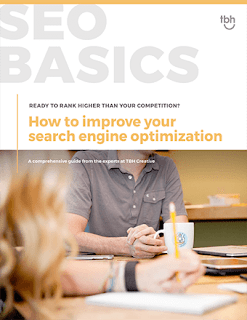
Sometimes clients ask: “Should I have multiple domains for my website? Will it help with SEO?”
The answer is: It depends.
If you want to purchase multiple domains (e.g., mycompany.com, mycompany.net, mycompany.biz), you can use different strategies to avoid getting penalized by search engines.
Having domain variations for one company that feature different keywords used to be a popular strategy to help with SEO. Unfortunately, this is no longer the case. In fact, this tactic may actually cause duplication issues if your domains aren’t set up correctly.
If the domain is pointing to a copy/duplicate of your existing website, that is not a good practice and actually hurts SEO and ranking.
The answer is: It depends.
If you want to purchase multiple domains (e.g., mycompany.com, mycompany.net, mycompany.biz), you can use different strategies to avoid getting penalized by search engines.
Having domain variations for one company that feature different keywords used to be a popular strategy to help with SEO. Unfortunately, this is no longer the case. In fact, this tactic may actually cause duplication issues if your domains aren’t set up correctly.
This article is part of the Complete Guide to Improving your Search Engine Optimization.
If the domain is pointing to a copy/duplicate of your existing website, that is not a good practice and actually hurts SEO and ranking.
About multiple domains
Current best practices recommend against having duplicate versions of the same website with different domains, so if that’s what you were thinking—stop right there.You’ll get the most benefit for domains that either permanently redirect to your main URL (called a 301 redirect) or if the content for each domain is unique. Duplicating your site is really bad for SEO, so you might skip ahead to the last section for more details.
Using friendly URLs for marketing
If you are purchasing friendly URLs for use on traditional print marketing (e.g., brochures and billboards), you can use a 301 redirect to point those duplicate domains to your main website or a landing page. In this scenario, it makes sense to use multiple domains to better reach your audience.Our client OrthoIndy registers unique domains for their physicians. For example, they registered the domain scottgudemanmd.com on behalf of one of their physicians. To make it easier for patients to get more information about Dr. Gudeman, they promote this easy-to-remember web address on collateral (e.g., his business cards and brochures) and set-up a redirect from this domain to his landing page on their main website, orthoindy.com/scottgudeman.
Other use-cases for multiple URLs that use redirects include:
- Variations of your main domain to prevent competition from diluting your brand (e.g., .net, .biz, .info)
- Variations of your domain if spelling may be tricky
- If your brand name is similar to another brand name in your space
- Really easy to remember names in your vertical (e.g., creating addresses without dashes and using domain types, such as .com)
#ProTip: If you have purchased a domain and it is pre-paid for a certain number of years, set it up as a 301 redirect. Tweet this
Using multiple sites with different domains
Depending on your business, there may be opportunities for you to build multiple websites with unique content for each domain. Take Frito-Lay, for example. They own a number of companies, including Doritos. As such, it makes sense to have a general FritoLay.com website with basic information about Doritos and a second website at Doritos.com with slightly different, more in-depth information about the product line.

As you can see in this screengrab, Frito-Lay has a double listing in a search result. Both of the websites for FritoLay and its product Doritos appear in the search results. Though the sites have different content, this also allows them to target similar-but-different keywords in hopes more users will find one of the sites via search.
When creating separate websites with related content, you’ll want to set rules around keyword targeting and ad spending to make sure you aren’t competing with yourself. If the content is too similar between sites (even if it’s not a duplicated), you may end up splitting domain authority, which can hurt your ranking in search results.
Creating and maintaining two or more websites with unique content and goals is a big task. Consider ROI before investing in multiple domains for multiple websites.Tweet this
No matter what, don’t duplicate your website under a different domain
Perhaps the worst option for using multiple domains is to duplicate your exact website and point to a different domain name. Search engine algorithms are smarter than ever, and they will not value duplicate content.Furthermore, duplicate content can also negatively impact your domain authority and general credibility with users and other websites. Instead, the best way to boost your SEO is to get other sites to backlink to your website.
Taking on this task can be challenging if you manage multiple websites with exactly the same copy. That’s because other content managers may not know which site is the original source or they might be confused about where they should point users). This can dilute any backlinking credibility you may have built up. Not to mention, with duplicate versions of your site on the web, you’ll need to make any edits in multiple places to ensure consistency across the board.
If you are considering a custom domain for marketing purposes or to attract more users, determine if you’ll redirect your domain back to the main site or if you have enough unique content to support an entirely separate website.
When it is appropriate, we would recommend consolidating your content and using one powerful website machine for your best chances at ranking for keyword SEO, backlinks, and domain authority.

Get your copy of the complete guide to SEO and discover what you can do today to improve your website’s search engine optimization.
Download now
Download now
